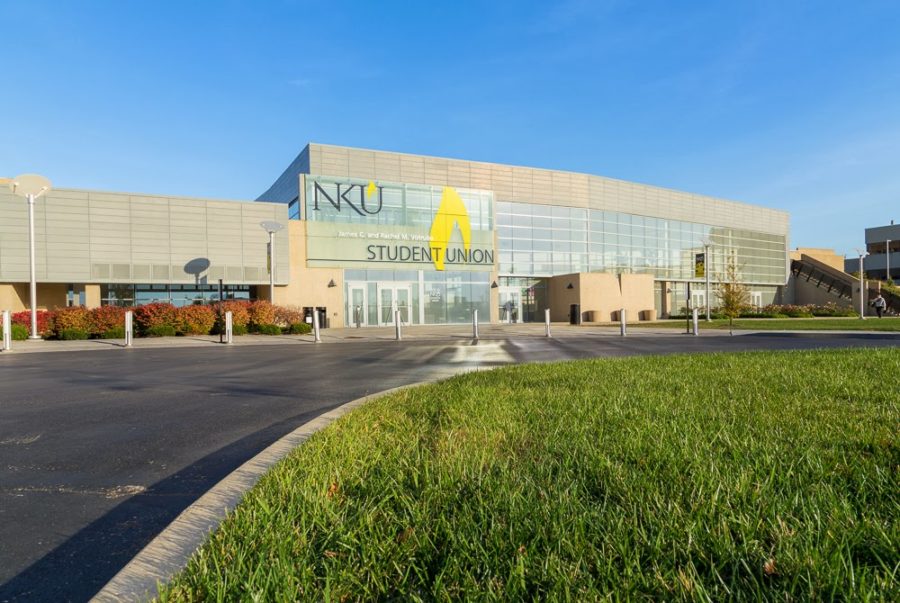Your donation will support the student journalists of Northern Kentucky University. Your contribution will allow us to purchase equipment and cover our annual website hosting costs.
NKU to raise tuition by 3% for upcoming school year
June 15, 2023
Northern Kentucky University will raise tuition by 3% for the 2023-2024 academic year, among other fee increases unanimously approved at this month’s Board of Regents meeting.
The base tuition for full-time undergraduate students will increase by $152 across the board with limited exceptions. For residents in Kentucky, Indiana and select Ohio counties, this represents a change from $5,104 to $5,256 per semester. For non-resident and international students, the charge is calculated at $10,384. At the current rate, NKU is taking in $161 million in tuition revenue.
The decision comes amid a projected drop of between 66 to 86 domestic students and 104 international students in enrollment numbers for the fall semester compared to the previous academic year, according to Assistant Vice President for Enrollment & Student Success Ryan Padgett. On the flip side, undergraduate retention and persistence rates are expected to climb above 80% this year, Padgett said.
Auxiliary fees—like housing, dining and parking—will also go up in the budget presented by Chief Financial Officer and Vice President for Finance & Administration Jeremy Alltop. Dining rates will increase by 8.5% with the most popular meal plan, the 225 block, being priced at $2,230 per semester. Housing hikes will vary between 4.9% and 7.8% depending on the room type.
The cost of an annual parking pass for students will move from $261 to $286, a change of 9.6%, for the two coming academic years. Annual parking rates for faculty and staff will increase by 6.2% from $404 to $429. No employee raises or merit compensation increases are on the budget at the moment, which Alltop said has been the trend for the past couple of years. $3.6 million is set aside for required salary savings.
A chart presented by Alltop shows a $9 million reduction in salaries and wages compared to last year, representing the loss of 125 full-time faculty and staff positions that have taken and will continue to take place between last fall and July 1.
Alltop brought forth a proposal to impose a $120 annual Campus Recreation Center membership fee for NKU faculty, staff and employees who retire after July 1, who have previously been able to use the facility free of charge. The costs of operating the Campus Rec go up every year while the population of paying students goes down, he argued, and a mandatory fee for employees could help generate as much as $80,000 for the university in two years.
Regent Michael Baranowski motioned to cap the employee Campus Rec fee in the second year to prevent it from being raised in the future. He stated that as the university is close to being budget neutral, capping the fee would not significantly impact the budget and could serve as a nice gesture to faculty and staff, who have been most affected by the deficit and subsequent cuts. Regent Cori Henderson seconded the motion and the board voted 7-4 on a budget amendment to adopt the cap.
NKU’s budget deficit has been reduced from over $24 million last fall to $9.6 million for the coming fall according to Alltop—the result of one year’s worth of tough decisions and difficult work. Similarly, projected recurring loss has shrunk from nearly 10% of NKU’s revenue to 3.6%. Alltop listed continually declining enrollment, rising utility costs, inflation and general uncertainties around state funding as ongoing challenges for the university.
The CFO led the budgeting process this year with a multidisciplinary team consisting of accountants, business managers and constituency groups across the campus to ensure accuracy, thoroughness and transparency, he said. The budget was designed in a way that could create ripple effects for 2025, allowing NKU to further reduce approximately $1.8 million in expenses—mostly in terms of instructional costs. Once approved, the budget will be submitted to NKU’s system around July 1.
The new budget sets NKU’s total revenue at $264.5 million, most of which will derive from the tuition increase. The total expenditure is projected at $280.6 million, a significant portion of which goes toward salaries and wages. Both figures are higher compared to the previous year’s revenues and expenses, with a smaller gap between them.
After approving the budget, the board instructed Alltop and the administration to reduce recurring operating losses by no less than $5 million and present a plan at their September meeting.
Regent Ken Perry commented that NKU should focus on revenue growth rather than further cuts, which was echoed by regents Baranowski and Henderson.
“There’s no way you can cut as deep as we have [for] many years now and not expect it to affect quality,” Baranowski said. “Faculty have been doing more with less, staff have been doing more with less for a long time now, but there comes a breaking point and it ends up falling on the students and that’s not okay.”

